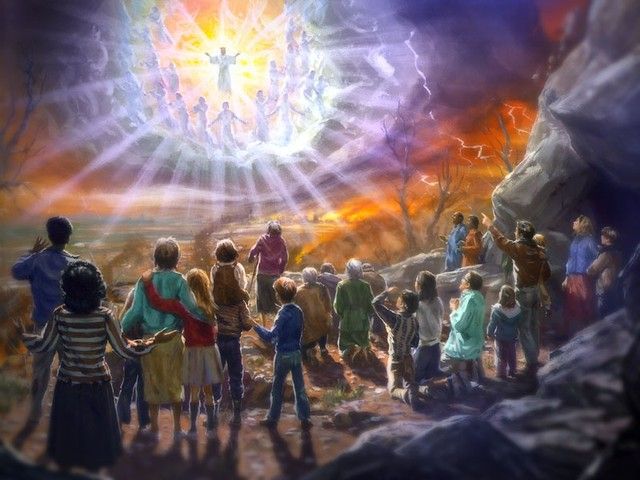Several fields of theology exist. For example, Christology, from the words Christos (meaning Christ) and logos (meaning word, logic, or the study of), is the study of Christ. Eschatology stems from two words; eschaton, (meaning last), and logos, as was covered earlier. Thus, eschatology is the study of lasts things. Soon, our church will undertake the study of the Olivet Discourse, a message given by Jesus on the Mount of Olives as recorded in Matthew 24-25, and the book of Revelation. Both studies deal extensively with the end times. However, some may wonder if such a study is necessary. Timothy Paul Jones provides two reasons as to why some people avoid the study of eschatology. Jones, concerning the study of the last things, denotes, “Sometimes such wonderings degenerate into endless debates and unwarranted speculation about specific details. Other times, end times curiosity comes to a screeching halt as people throw up their hands at what they’ve begun to feel is an impossible and fruitless enquiry.”[1] One should avoid the extremes when studying eschatology, as one should remember that “day and hour no one knows—neither the angels in heaven, nor the Son—except the Father only” (Matthew 24:36),[2] while also remembering that the Christian should “be alert, since you don’t know what day your Lord is coming” (Matthew 24:42). Studying the end times can be quite beneficial as there are three reasons why one should study eschatology.
1. Helps us to Focus on What Really Matters
First, eschatology helps one to focus on what really matters. Often, individuals live their lives as if their time on earth will last forever. People often allow minute details and issues to create rifts in their lives and damage their relationship with their family, friends, and colleagues. Why does this occur? Often, such things occur when one does not realize one’s place in history. The cold hard truth is that this world will not last forever. There is coming a day when everything shall change. The NFL, NBA, MLB, and even college sports will one day cease to exist. Governments and their institutions will cease. But, one can assuredly rest in the promise that Jesus provides in that “Heaven and earth will pass away, but My words will never pass away” (Matthew 24:35). Eschatology helps the believer place their focus on what really matters and lessen their emphasis on the things that will pass away.
2. Helps us Not to be Overcome with Evil
Paul denotes that one should “not be overcome with evil, but overcome evil with good” (Romans 12:21). Let’s face it. 21st century Christians are overwhelmed with evil. Ebola is spreading, militant atheists and terrorists seek to destroy Christian freedoms, and ultra-liberalism seeks to pound out Christian convictions under the auspice of political correctness. If one is a “worry wart,” they have a lot to fuel their worrisome fires. Yet, it should be remembered that Paul wrote these words in a world that was oppressed by a Roman government that was no friend to the Christian faith. Furthermore, Paul could claim that one should not be overcome by evil because he focused on the end result; that is, that Christ will be victorious and that one day “at the name of Jesus every knee will bow—of those who are in heaven and on earth and under the earth—and every tongue should confess that Jesus Christ is Lord, to the glory of God the Father” (Philippians 2:10). While there may be variations in the way individuals interpret the end times, the core focus of eschatology is that Jesus will be victorious and that good will eventually defeat evil.
3. Emphasizes the Work that Needs to Be Done
Lastly, eschatology helps one remember that there is work to be done. Life is like a vapor, or “smoke that appears for a little while, then vanishes” (James 4:14). Thus, when one realizes that Jesus is coming soon to establish His kingdom in its final stage, then one should work harder and will focus on the task at hand. It reminds me of a time when I worked at a textile manufacturing facility. The CEO of the company was to visit the company. Everyone was abuzz trying to get everything to the point that it would be acceptable to the CEO. The managers knew approximately the time that the CEO would appear, but they were not exactly sure of the time that he was to appear. Therefore, everyone worked hard as they knew that the top executive of the company was about to pay the facility a visit. In like manner, every Christian should work as though Jesus were to appear at the next moment. You never know, He just might. Jesus is the top CEO of creation. Are we working so that He would be pleased with our efforts? Eschatology brings a focus on the work that needs to be accomplished.
Conclusion
While there have been some who have abused eschatology by setting dates and others who seek to dismiss the claims of Revelation and end times prophecy, eschatology is a valuable field of study for the Christian. Eschatology helps us focus on what really matters, provides us encouragement in that good will eventually triumph, and enlightens us to do the work that is necessary before Christ returns. While there are varying interpretations of the end times, one should never lose focus on the three essentials concerning the end; that is, that “Jesus will return physically to earth, God will physically resurrect all humanity, [and that] Jesus will judge all humanity.”[3] Be not discouraged. Jesus is coming soon.
© Pastor Brian Chilton. 2014.
Bibliography
All Scripture used in this article, unless otherwise noted, comes from the Holman Christian Standard Bible. Nashville: Holman Bible Publishers, 2009.
Jones, Timothy Paul. Rose Guide to End-Times Prophecy. Torrance, CA: Rose Publishing, Inc., 2011.
________________________________________________________
[1] Timothy Paul Jones, The Rose Guide to End-Times Prophecy (Torrance, CA: Rose Publishing, 2011), 3.
[2] Unless otherwise noted, all Scripture comes from the Holman Christian Standard Bible (Nashville: Holman Bible Publishers, 2009).
[3] Jones, 42.





